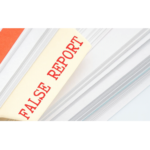Domestic Violence Records Now Accessible

New South Wales residents concerned about the risk of domestic violence are now be able to apply to access their partner’s criminal history.
In an Australian first, NSW police are now able to reveal convictions related to murder, manslaughter, sexual assault, property damage, stalking and intimidation, breaches of an apprehended violence order and child abuse. Accusations that are not yet finalised in court and ‘not-guilty’ verdicts will not be subject to disclosure.
Police say they will aim to process applications within two weeks, or 48 hours in high risk situations.
Concerned third parties, such as family members and friends, can also make an application, although disclosure will only be made to the person at risk.
“The goal is to empower them [potential victims] to make perhaps the most challenging decision, which is to leave before they’re a victim of violence,” Assistant NSW Police Commissioner Mick Fuller said.
Assessment of Applications
The process requires applicants to express ‘concerns about their safety’, and there is no formal assessment process or criteria to determine whether any risk to safety is reasonable or imminent.
However, police say they will undertake a risk assessment for each application, giving careful consideration to the potential impact upon the subject before disclosure is made.
Reasons Behind the Move
Police across Australia deal with an estimated 657 domestic violence complaints every day. That’s one every two minutes. In total, one in six Australian women are said to have experienced physical or sexual violence from a current or former partner during their lifetime.
The new policy is designed to help partners make informed decisions about whether they wish to commence or continue a relationship.
Criminal Records and Privacy
On the other side of the coin, some argue that people who have had their matters finalised and ‘served their time’ should be able to move on with their lives – free from the continued effects of past conduct.
Criminal records are subject to privacy laws. Under the Privacy Act 1988, they are classified as ‘sensitive information’, which means they can only normally be released with the subject’s consent, or for use by law enforcement agencies, immigration officials and administrators of justice, such as courts.
The Office of the Australian Information Commissioner acknowledges that inappropriate handling of sensitive information can have devastating consequences for individuals and their families, with discrimination in employment being particularly prevalent.
“Mishandling of sensitive information may also cause humiliation or embarrassment or undermine an individual’s dignity,” the OAIC says.
Achieving a Balance
The right to privacy is certainly not absolute in Australia, and there are many areas where breaches occur to promote security and the best interests of society.
Having said that, there is an argument that the new rules make it too easy for a person’s privacy to be breached by those who do not have legitimate concerns for their safety, or who seek information out of malice, vengeance or other inappropriate reasons. There are also concerns that disclosure can be made regardless of the nature of the actual offence and the time elapsed since its commission.
Taking those matters into consideration, it may be appropriate to amend the current regime to include:
- A comprehensive test for ‘reasonable concerns’ which incorporates set criteria which need to be met before a provisional decision is made to release information, followed by
- A right of response by the subject, where he or she is notified of the proposed disclosure and can respond by outlining concerns, including any fears of misuse, and
- Judicial oversight, where the subject can seek a binding determination from a local court.
A regime which provides a better balance between preventing domestic violence and protecting privacy rights, overseen by the courts, might reduce the likelihood of potentially damaging information being disclosed where there is an insufficient need to do so, or where such information is likely to be misused.






